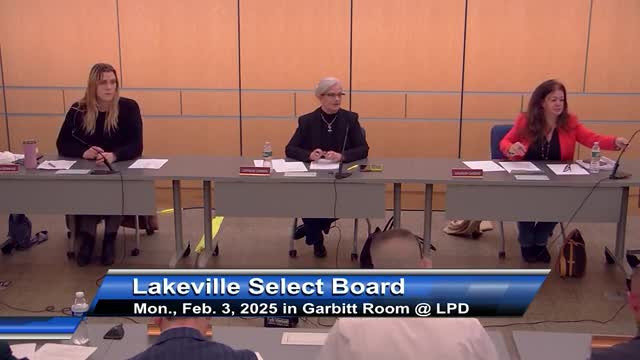Lakeville and Freetown chiefs stress annual joint active‑shooter drills, urge budgeting for training and SRO support
Get AI-powered insights, summaries, and transcripts
Subscribe
Summary
Police chiefs from Lakeville and Freetown described annual joint active‑shooter training for regional schools, outlined typical training hours and costs, and discussed school resource officer coverage and funding splits; officials urged building training into town budgets and seeking grant funding.
Chiefs from Lakeville and Freetown told a joint select board meeting that annual joint training for schools remains a priority and that repetition and cross‑agency exercises are critical to preparedness.
Why it matters
The towns share a regional school campus and emergency response across municipal lines. Officials said coordinated training, mutual aid and staff familiarization reduce response times and improve safety for students and staff.
What the chiefs described
Joint training cadence and formats: Chiefs reported they conduct active‑shooter/hostile event training annually when budgets allow. Training typically includes a tabletop planning exercise and live drills. Participants described a model where most attendees receive an 8‑hour block of instruction while trainers or instructor staff put in additional hours (train‑the‑trainer or 16 hours) to prepare and run exercises.
Programs and frameworks: Officials referenced standardized frameworks adopted in the region — described in the meeting as an Active Shooter/Hostile Event response plan — and school employee training under the ALICE model (Alert, Lockdown, Inform, Counter, Evacuate). Chiefs said staff and police train separately and also conduct joint multi‑agency exercises to practice command, staging and casualty evacuation procedures.
Funding, grants and scheduling: Chiefs said the training is costly because of overtime and staffing needs and recommended that the towns budget for recurring training rather than relying on ad hoc overtime. They described pursuing grant funding when available; one example cited was an eight‑hour joint training the previous year that was funded in part by a grant. Officials urged building a predictable line item into municipal budgets to avoid irregular funding gaps.
School Resource Officers (SROs): Participants discussed SRO coverage at the regional campus. Lakeville has one SRO assigned to multiple schools on the campus; Freetown said it absorbed a part‑time SRO position into its budget and is evaluating full‑time coverage. Discussion included the pay split for SRO positions: meeting remarks referenced the district paying a majority share of an SRO salary (participants estimated roughly two‑thirds of a base patrol position in the discussed example) with the town covering the remainder. Speakers noted trade‑offs: assigning an officer full time to a school reduces patrol availability and may raise overtime costs.
Recommendations and next steps
Chiefs recommended a predictable, rotating schedule for campus training that covers each school in turn and repeated annual exercises to maintain readiness. Select boards directed town administrators and police leadership to explore grant opportunities, cost estimates to include in next budgets, and continued coordination on SRO coverage. No new positions or funding lines were approved at the meeting.
